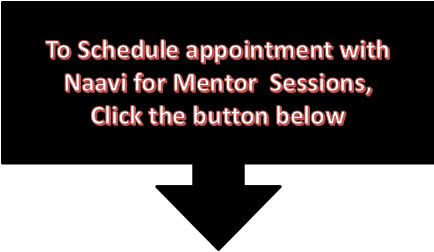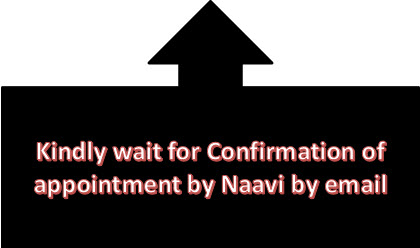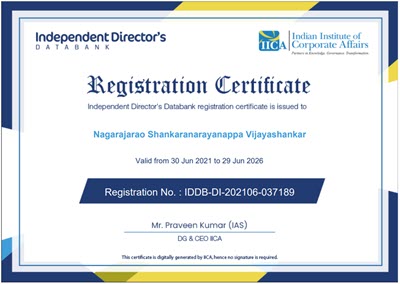Bengaluru is hailed as the Silicon Capital of the country. A few years back there was an announcement made that Bengaluru would be made the Cyber Security Capital of the country. Startups still consider that this is the City to be in. Even established Start Up promoters like Mr Vijay Shekar Sharma of Paytm has indicated his interest in shifting his personal base to Bengaluru. We already have IT giants like Azim Premji, Nandan Nilekani and Mohan Das Pai with their own funding propositions for start ups.
These should be considered as opportunities to push growth of Start Up business which requires low infrastructure support and has high visibility. Unfortunately, the State Government does not seem to have a good understanding of the E-Business. Its past trophies such as the “First Cyber Crime Police Station in India”, E Governance initiatives such as “Bhoomi” and more recent achievements in the implementation of Aadhar etc are slowly gathering dust with either no achievements or more alarmingly some negative achievements.
One of the main areas of concern is the “Law and Order” in Cyber Space in India where the Government has failed miserably to put proper laws in place and is trying to do its best in creating hurdles which are discouraging the e-entrepreneurs.
Firstly, in January 2011, the then IT Secretary acting as the “Adjudicator” declared that the word “Person” used in Section 43 of ITA 2000/8 did not extend to corporate bodies. As a result any Corporate body was considered as not being capable of invoking Section 43 either for or against another corporate entity. As as result even Section 66 became purely a section meant for “individuals” and any cyber crime committed by a Company or against a Company was outside Section 43 and Section 66.
By an extension of this revised definition of the word “person” which is against the definitions used in other laws including the General Clauses Act, most sections of ITA 2000/8 have been rendered impotent forcing me to claim that Karnataka is now a “Cyber Criminal’s heaven”.
This issue remains unresolved since the appellate body namely Cyber Appellate Tribunal is dysfunctional for the last 4 years without a Chair person having been appointed and unlikely to be resolved until the NJAC stand off is amicably settled between the Government and the Judiciary.
More recently, the ignorance of the Government was also revealed in the passage of the Indian Registration Act 1908 amendment bill which has now gone to the President for assent which is considered ultra-vires ITA 2000/8. (Status of assent unknown at this point of time).
Now today’s Economic Times indicates that the Karnataka Government is expected to come out with a new rule called “On Demand Transport Technology Aggregator’s Rules, 2015”
This has raised or will raise a new controversy on the powers of the State to meddle with ITA 2000/8.
I wish the taxi companies such as Uber and Ola also watch this space since they have committed some mistakes in the past which has reduced their bargaining power as to the definition of the business of “Aggregations” over the electronic network. If this is not properly addressed now, there will be precedence s created which will hurt the interest of several other businesses.
I recall my own opinion expressed earlier on these columns in which I considered that what Taxi For Sure or Ola or Uber were doing was a glorified call center business (Now called by the fancy name aggregators) and they have to be treated as such and not as “Taxi Companies” requiring Taxi licenses.
The Kolkata Police authorities appear to hold a similar view though Delhi and Karnataka Governments may not agree because they are looking at it only from the point of view of taxation and not otherwise.
The proposed rules from Karnataka (details not yet available with Naavi) may further complicate the issue with a Government backed notification which may consider Uber/Ola as “Technology Aggregators” but would like to pass a regulatory notification.
The issue is similar to the issue of regulation of Cyber Cafes where State Governments in the past passed laws that are in conflict with ITA 2000/8. Similar situations may arise in the case of these Taxi aggregators.
If these companies are “Techology Aggregators”, they may come directly under some provision of ITA 2000/8. Then the power to make the rules may be in conflict with Section 90 of ITA 2000/8 which states as under.
Section 90 (ITA 2000/8): Power of State Government to make rules
(1) The State Government may, by notification in the Official Gazette, make rules to carry out the provisions of this Act.
(2) In particular, and without prejudice to the generality of the foregoing power, such rules may provide for all or any of the following matters, namely –
(a) the electronic form in which filing, issue, grant receipt or payment shall be effected under sub-section (1) of section 6;
(b)for matters specified in sub-section (2) of section 6;
(3) Every rule made by the State Government under this section shall be laid, as soon as may be after it is made, before each House of the State Legislature where it consists of two Houses, or where such Legislature consists of one House, before that House.
Apart from the immediate concern on the way Uber or Ola may be regulated, the issue is of larger concern to the E Commerce industry in general.
For example, any legal precedence established and accepted in the case of aggregators of taxi services may directly affect the definition of an “Intermediary”. Technology based aggregations occur in cases such as Oyo rooms, Make My Trip, Flipkart, Paytm, 99acres.com and many many other services.
It is imprudent to consider each of the “aggregators” as carrying the same legal liability for the down stream domain business in which they operate.
For example,
If I am a real estate aggregator, am I liable as a real estate builder?, If I am a hotel room aggregators, do I need license to run hotel business? If I aggregate airline tickets, do I need to have air line ticketing license?,
Such discussions will directly hurt the growth of E Commerce in India and the “Digital India” project.
In the reverse,
If I am already an established aggregator who is accepted by the Government say as supplier of food to railway passengers, Can I claim to be part of the Indian Railways?..
If I am an aggregator of banking services, can I claim I already have a deemed banking license?
If I am an aggregator of medical services, can I claim myself to be a recognized hospital?… these are the issues which will come up for debate.
Such discussions will make the Government moves look absurd.
I therefore draw the attention of the Karnataka State Government and the Government of India to think twice before such legislations on E-Commerce are permitted under Section 90 of ITA 2000/8.
I call upon the industry to also respond immediately so that they will not be required to fight a “fait accompli” on a later date.
Naavi
Related Articles:
Govt frames rules for cab aggregators like Ola, Uber
New State policies could spoil the arty for taxi aggregators like Ola and Uber
Why It is a mistake to think of Uber as a Technology Company (January 15, 2015)
Government Fails to understand Uber Business (Dec 11, 2014)
Uber failed in ITA 2008 Compliance (December 11, 2014)










